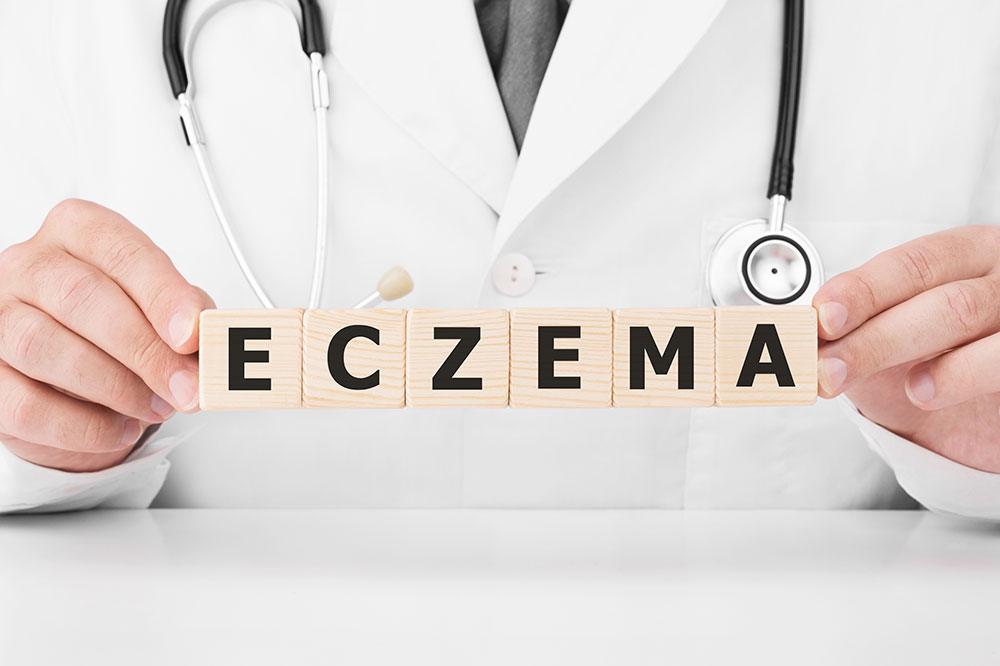
A comprehensive guide to eczema
Eczema is an inflammatory condition that happens when the body responds to allergens and irritants, causing bumps, rashes and redness in our skin. The skin condition is common in children and may disappear when they enter their teens, or it shows for the first time in one’s adulthood. Eczema that begins in adulthood usually has severe symptoms. Since the condition has no cure, doctors focus on controlling, preventing, and managing its symptoms.
Common symptoms of eczema
The symptoms of eczema may vary in intensity and differ from one person to another. Phases of flare-up and remission are other typical characteristic features of eczema. The most common symptoms include:
Dry and cracked skin
Itching
Swelling, bumps, and red-colored rashes on the skin
Oozing and crusting on the bumps and rashes
Thickening of skin
Main eczema causes and triggers
Doctors have not yet isolated any one precise cause for eczema but have identified many triggers that can result in sudden or worsened existing symptoms. Some of the common triggers of eczema in adults and children are:
Family history of allergies
Extreme dry skin
Allergens and irritants like dust mites, pollen, pet dander, laundry detergents, household cleaning liquids, food preservatives and additives, food allergies, extreme heat or cold, pollution, or stress.
Eczema treatment for children and adults
Doctors treat and manage eczema first by identifying the trigger and then starting treatment based on the severity of the symptoms. They can use one or more of the following options to treat eczema to reduce the pain, burn, itch and inflammation associated with eczema:
Antihistamines
Pain relievers
Topical hydrocortisone
Topical JAK and PDE4 inhibitors
Immunosuppressants
Biologicals
Prescription shampoos
Prescription topical creams
Phototherapy is another safe treatment option for children and adults, and doctors recommend it if there is no improvement in oral or intravenous prescriptions. Doctors administer phototherapy using different wavelengths of UV light to reduce inflammation. You would have to continue this treatment for two months to see improvement.
Natural eczema remedies
Eczema can require continuous and long treatment, resulting in side effects. Preventing exposure to eczema triggers and making food and lifestyle changes are some natural remedies that can help manage mild symptoms of eczema. Some other eczema remedies include:
Use products like soaps, shampoos and detergents certified by dermatologists or the National Eczema Association to ensure that the products do not contain any potential allergens and triggers.
Use prescription moisturizers right after bath and before bedtime to prevent dry skin.
To find relief from itch and pain, you can also use natural moisturizers like coconut or sunflower oil and diluted apple cider vinegar directly on the areas affected by eczema.
Try a cool compress, bleach, or oatmeal bath once or twice a day when symptoms are severe.
Foods to help with eczema
Since eczema is an inflammatory condition, anti-inflammatory foods rich in antioxidants and nutrients are best suited for the condition. Follow an elimination food regime, prepare a meal journal, and you will know what suits you and causes a flare-up over time.
Foods to eat
Apples, beets, berries, carrots, fatty fish, ginger, grapes, green tea, kale, oatmeal, pears, peppers, probiotics like yogurt and miso, and spinach.
Foods to avoid
Avoid natural foods that can cause allergies and package foods with artificial flavoring, coloring, or additives. Items like aubergines, raisins, cinnamon, eggs, some nuts, cheese, butter, nightshades, peanuts, shellfish, vanilla, and wheat.




